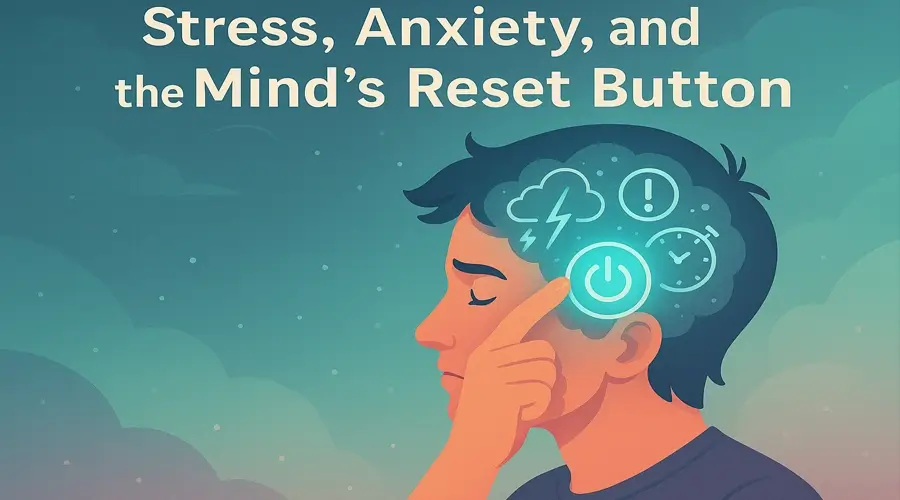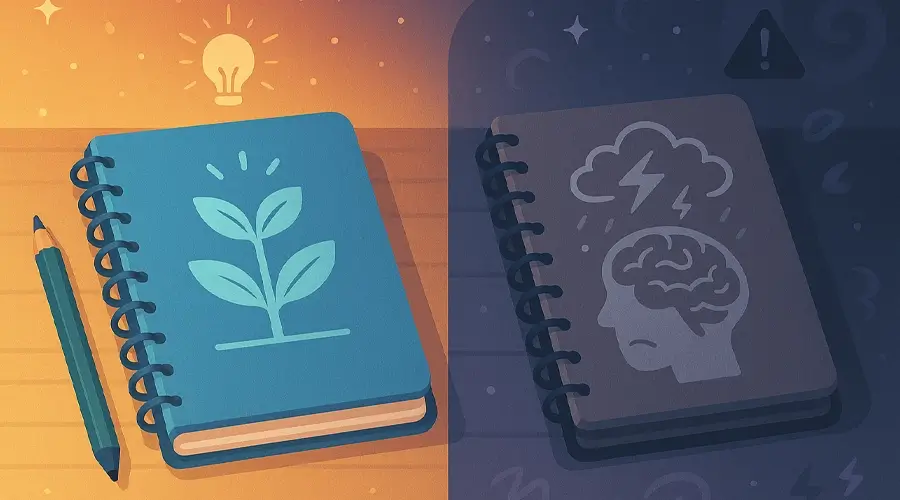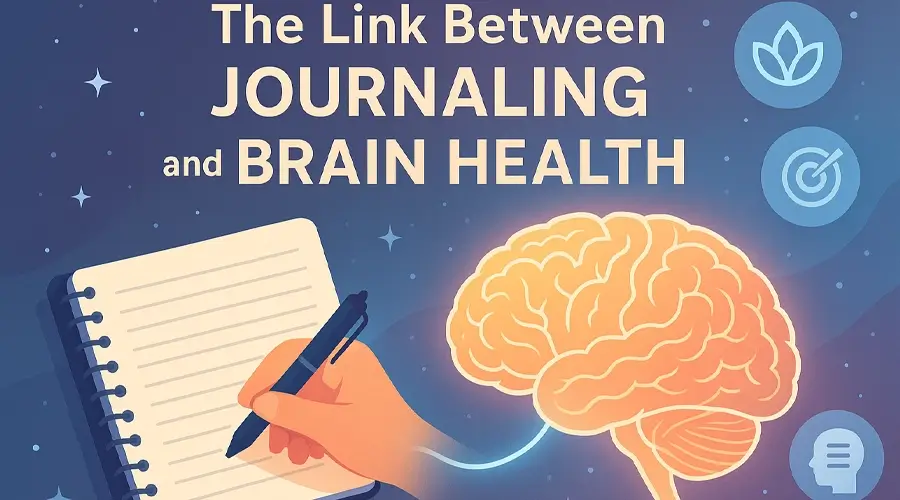Let’s be honest—when you hear the word journaling, your mind probably jumps to teenage diaries, messy handwriting, or those overly aesthetic notebooks on Instagram. But journaling today is something much bigger, more intentional, and surprisingly powerful. It’s not just a feel-good hobby—it’s a brain hack hiding in plain sight.
At its core, journaling is the act of externalizing your internal world. And your brain? It loves that. Why? Because writing activates multiple areas of the brain simultaneously—language processing, emotional regulation, memory recall, and even problem-solving. When you’re writing by hand, your brain’s neural networks are more actively engaged than when you’re typing or just thinking. It’s like a cognitive workout in disguise.
But here’s the twist: journaling isn’t therapy. It’s mental fitness.
Just like lifting weights builds muscle, consistent journaling strengthens your mental clarity, boosts your cognitive resilience, and helps reduce stress and anxiety. Research in neuroscience even links journaling to better emotional balance, improved executive function, and healthier brain plasticity over time.
The Brain on Journaling: What Science Actually Says
So what’s really happening inside your brain when you journal?
It turns out that journaling has a much deeper neurological impact than most people think. Research in cognitive neuroscience shows that regularly putting your thoughts into words—especially by hand—can actually reshape how your brain functions. This is thanks to a concept called neuroplasticity, your brain’s ability to adapt, rewire, and grow new connections. And the more consistently you journal, the more flexible and resilient those neural pathways become.
Let’s break it down:
-
Neuroplasticity: Each time you journal, your brain forms new synaptic links. You’re literally training it to process emotions, organize thoughts, and find meaning in experiences. Over time, this improves your ability to regulate mood, cope with change, and build mental resilience.
-
Memory retention: Writing things down—especially emotionally charged reflections—helps your brain encode information more deeply. The act of journaling forces your mind to slow down and focus, which is crucial for creating strong, lasting memories. This is especially true when you’re doing reflective journaling or gratitude journaling, both known to boost long-term memory.
-
Cognitive clarity: Journaling helps filter out the noise. It gives your brain a structured space to think through problems, make decisions, and reduce mental clutter. Many people report a sharper sense of clarity and control after just a few days of consistent writing.
Now, what about handwriting vs. typing?
Studies show that handwriting activates more areas of the brain than typing does. When you write by hand, you engage the motor cortex, the prefrontal cortex, and the hippocampus—the part responsible for memory. That physical movement of shaping each letter seems to deepen the brain’s engagement and emotional connection with the content. So while typing is faster, handwritten journaling is more neurologically enriching.
And here’s where it gets really interesting: the connection between emotional regulation and writing.
When you journal, you’re not just venting or documenting—you’re creating structure from emotional chaos. This process is known to reduce activity in the amygdala, the brain’s fear center, while boosting function in the prefrontal cortex, which is responsible for rational thinking and self-control. It’s one reason why people who journal regularly report lower anxiety, better mood, and an increased sense of psychological balance.
Stress, Anxiety, and the Mind’s Reset Button
In a world that constantly pushes us to go faster, do more, and stay “on” all the time, it’s no surprise that stress and anxiety have become everyday companions. But what if your brain already had a built-in way to slow things down and reset itself—without needing a therapist, an app, or even Wi-Fi? That’s where expressive writing comes in.
Expressive journaling is one of the most researched forms of journaling, especially when it comes to its impact on brain health and emotional well-being. It’s not just about unloading your feelings onto a page; it’s about helping your brain process and reframe what’s overwhelming you. And when you do this consistently, you create a space for your mind to breathe—and eventually, to heal.

Here’s how it works neurologically:
When you’re anxious or under stress, the amygdala—your brain’s emotional alarm system—goes into overdrive. It signals danger, even when none is present, keeping your body in a state of fight-or-flight. But when you engage in journaling, especially emotional or reflective writing, the activity in the amygdala decreases. At the same time, the prefrontal cortex—responsible for logic, reasoning, and self-control—becomes more active. Essentially, journaling helps you shift from reaction to reflection.
Now let’s talk about the science behind gratitude journaling, a rising star in the world of mental health. By writing down things you’re thankful for—even small ones—you’re training your brain to focus on positive stimuli. Over time, this rewires your neural circuits toward optimism, emotional regulation, and resilience. Studies show that individuals who engage in gratitude journaling regularly report reduced symptoms of depression and anxiety, improved sleep, and stronger emotional strength.
And the best part? It’s simple. You don’t need perfect grammar or profound thoughts. You just need honesty and a pen.
Journaling as a Brain Gym: Building Mental Muscles
If you think of your brain as a muscle, then journaling is your daily workout. And just like physical exercise improves strength and endurance, consistent writing sharpens and strengthens your cognitive functions over time.
When you engage in daily journaling, you’re not just capturing your thoughts—you’re organizing them, prioritizing them, and examining them through a structured lens. This practice naturally boosts your brain’s executive functioning—the set of mental skills that includes planning, focusing attention, remembering instructions, and juggling multiple tasks effectively.
One of the biggest cognitive benefits of journaling is what we call mental decluttering. Most people carry around a nonstop stream of internal dialogue—anxieties, to-dos, emotional noise—that slows down the brain’s processing power. Writing acts as a release valve. It clears that mental fog and frees up space for critical thinking, problem-solving, and decision-making. Instead of getting lost in loops of worry, you create clarity, order, and direction.
Over time, this also increases mental endurance. Just like training for a marathon, building mental resilience takes repetition and discipline. Journaling strengthens your attention span by requiring you to sit with your thoughts, stay focused, and finish what you started. It helps improve concentration, especially in a world full of distractions. That’s why so many high performers—athletes, CEOs, creatives—swear by their daily journaling habit. It’s not just emotional hygiene. It’s cognitive training.
Neurofeedback from Your Own Pen: Self-Tracking and Awareness
One of the most overlooked powers of journaling is its ability to act as your personal, low-tech form of neurofeedback. No fancy headsets, no brain scans—just you, your thoughts, and a pen. Over time, your journal becomes a mirror that reflects the patterns, habits, and emotional cycles you might otherwise miss.
By putting your thoughts on paper, you begin to spot recurring themes: the triggers that stress you out, the situations that energize you, or even the subtle ways you self-sabotage. This is the starting point of metacognition—thinking about your thinking. And the more metacognitive you become, the stronger your self-awareness grows.
Why does this matter for your brain health? Because when you understand how you think, you gain the power to shift those patterns. Instead of reacting automatically, you start responding intentionally. This strengthens your prefrontal cortex, improves emotional regulation, and enhances decision-making—all key aspects of long-term cognitive health.
Consistent daily logging makes these insights even deeper. With each entry, you’re creating a timeline of your mental landscape. Over weeks or months, you can literally track your personal growth, spot thought loops, and notice changes in your emotional resilience or focus levels. This not only reinforces learning and memory but also gives your brain the tools it needs to adapt and evolve.
Not All Journaling is Equal: Finding What Works for Your Brain
Here’s the truth: not every kind of journaling works the same way for everyone. Your brain is unique, and so are your emotional patterns, thought processes, and mental health goals. That’s why choosing the right style of journaling isn’t just helpful—it’s essential for maximizing the mental and neurological benefits of the practice.
Let’s break down a few popular types of journaling and how they connect to different aspects of brain health:
-
Stream-of-consciousness journaling: Think of this as brain-dumping without rules. You write whatever comes to mind—raw, unfiltered, spontaneous. This type helps release emotional tension, reduce stress and anxiety, and bring unconscious thought patterns to the surface. It’s ideal for enhancing emotional regulation and processing inner conflicts.
-
Bullet journaling: Structured, efficient, and highly customizable, bullet journaling combines goal-setting, task management, and self-reflection. This style supports executive functioning, helps sharpen focus, and improves mental clarity—especially useful for those managing overwhelm or seeking productivity without burnout.
-
CBT journaling (Cognitive Behavioral Therapy): Rooted in psychology, this journaling method encourages users to track thoughts, identify cognitive distortions, and consciously reframe negative thinking. It’s especially powerful for increasing self-awareness, strengthening the prefrontal cortex, and reinforcing healthier mental habits.

The key is alignment—matching your journaling style to your personal mental health and cognitive needs. Someone navigating emotional chaos might benefit more from expressive or stream-of-consciousness writing, while someone aiming to organize thoughts and stay productive might thrive with bullet journaling. If you’re working through anxiety, overthinking, or past trauma, CBT-based journaling can be transformative.
But don’t feel locked into one method. Experiment. Treat journaling like a mental lab—try one format for a week, then switch. Pay attention to how your brain responds. Do you feel calmer? More focused? Less reactive? Let that feedback guide you.
Micro Habits, Macro Impact: Start Small, Think Big
When it comes to building habits that truly improve your brain health, there’s one principle that consistently proves more effective than anything else: consistency beats intensity. You don’t need to write pages each day, spill your soul into a leather-bound notebook, or journal for hours to experience real change. In fact, starting small—really small—is often the smartest path forward.
This is where micro habits come in. Simple, manageable routines like a 3-minute journal can create significant shifts in your cognitive function, emotional regulation, and mental clarity over time. Just jotting down how you feel, three things you’re grateful for, or one intention for the day can activate key regions of the brain like the prefrontal cortex, strengthen neural pathways, and reinforce a sense of control.
The beauty of micro journaling is that it’s frictionless. You’re more likely to stick with something that feels doable—even on busy or low-energy days. And that’s the key to long-term neuroplasticity: repetition. Every time you write, even for a minute or two, you’re reinforcing healthy mental habits that compound like interest.
To make journaling stick, treat it like brushing your teeth—non-negotiable, but not overwhelming. Anchor it to a trigger: after your morning coffee, right before bed, or as part of your wind-down routine. Keep your tools simple and accessible: a small notebook on your nightstand or a journaling app you enjoy.
Remember: journaling and brain health thrive not on perfection, but on presence. You don’t need a breakthrough every day. You just need to show up.
Conclusion: Rewrite Your Mind
Your brain is not a fixed machine—it’s a living, evolving system that responds to how you treat it. And the beauty of journaling is that it doesn’t require perfection, deep insights, or hours of your day. It simply asks for your presence. A few minutes. A bit of honesty. A willingness to pause and listen inward.
By now, you’ve seen how powerful journaling can be for enhancing brain health, boosting emotional regulation, improving mental clarity, and rewiring thought patterns through neuroplasticity. Whether you’re writing to reduce stress and anxiety, sharpen your focus, or simply get to know your inner world better, journaling offers something most habits don’t: real, lasting transformation from the inside out.
So here’s your invitation:
Start a 14-day journaling challenge—nothing fancy, just a few intentional minutes each day. Explore different journaling styles. Notice what your brain gravitates toward. Track how you feel. And most importantly, give yourself permission to be messy, inconsistent, even brief. What matters is showing up.
🖊️ Reflect deeper, grow smarter — with VERBOAI.
Start journaling today and let AI guide your mind.
In the end, your mind deserves space—space to breathe, to reflect, to release. And journaling gives it just that.



